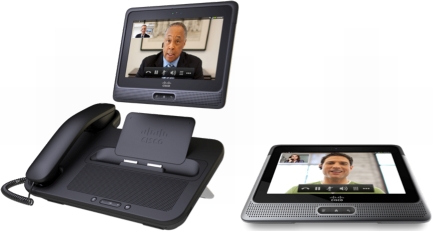Cisco Cius tablet pack to sell at $1000


Cisco overnight announced the launch of its new application AppHQ and provided a price and date for when its Cius tablet goes on sale globally.

Cius tablet with the media station
(Credit: Cisco)
Cisco spokesperson Linda Horiuchi said that the tablet and a media station would sell together as a package in Australia for around $1000, with the tablet accounting for around 70 per cent of that price.
The tablet and media station can be ordered now through Cisco-certified collaboration partners and will begin shipping in Australia on 31 July 2011, she said.
Horiuchi said that Cisco expected most customers to use the tablet together with the media station into which the tablet slots, creating a virtual desktop with phone, screen, Ethernet ports, and USB ports for keypad, headsets and other devices.
Will the Cius succeed?
When one hears the terms business or enterprise when advertising a tablet, it's easy to think of tablets that fell by the wayside, such as the HP Slate and, even more so, the BlackBerry PlayBook.
It doesn't help Cisco that the Cius already looks like the PlayBook at first glance. They both feel about the same when being held in one's hand, a bit bulkier but still smaller than the shiny and sleek iPad 2 and even the Galaxy Tab (at least the 8.9- and 10-inch variants). Even HP's TouchPad, feels a bit fancier and more modern than the Cius.
The Cius does have a few advantages over the PlayBook and even the Slate. First, in comparison to RIM's tablet, the Cius has a native email app that supports IMAP, POP, Exchange and multiple email accounts (both personal and business-related) at one time.
Tom Puorro, senior director of product management in Cisco's Collaboration Solutions department, noted during Wednesday's media event/telecast that customers often ask "Do I have access to email or web browsing?" Puorro answered his own question by stating, "It's much more than that."
Well, actually is it? Given how much flack RIM took when releasing the PlayBook without a native email app, it's arguable that a manufacturer can't release a tablet without such software.
Although Cisco is obviously focused on its own software suite embedded within Android 2.2 on the Cius (more on that below), it's these little things like email support that most customers, whether they be the average consumer or an enterprise client, care about at the end of the day.
Touching back on some of the strengths of the Cius, Cisco is tapping into its existing successful projects such as WebEx and TelePresence as advertising points. Then there's the telephone docking station. Cisco reps joked that one could leave their Windows-based PC far away "where it belongs" in Alaska and still reach it from anywhere else in the world.
Furthermore, Cisco has introduced AppHQ, a very unique new app platform that Cisco reps argue brings power back to the hands of IT managers. There are plenty of companies that are handing out and using iPads and other tablets for work purposes. But the qualms here are mainly security-related as IT administrators have far less control about what can be downloaded and installed to these machines, putting these tablets more at risk.
AppHQ can be configured by IT departments and made available to employees in three ways:
- An open portal to the full Android Market
- Basic Cisco AppHQ with a mixture of Android apps and Cisco-validated business applications
- Privatised Cisco AppHQ with only IT-selected apps.
IT managers can also wipe individual apps from an individual Cius unit remotely, or wipe the entire device clean. The latter can be used in a variety of situations, including theft/loss of the device or if the employee is leaving the company. For enterprises, this system could actually prove to be incredibly useful and fulfil a void that other tablets can't as most of the popular ones on the market today are simply consumer-grade and have no need for this set-up.
However, the price could make or break this device, depending on your perspective. For large enterprises and even smaller ones with a lot of cash to spend who could use more advanced teleconferencing and collaborative tools, then the price could very easily be justified. People who already use Cisco products will probably actually love this device given how much of Cisco's software is integrated throughout the user interface, but there is also room for personal usage (if the IT department permits it).
Otherwise, it's hard to see the Cius being successful on a wide spectrum, but it doesn't even look like Cisco reps are aiming for that anyway.
Via ZDNet US